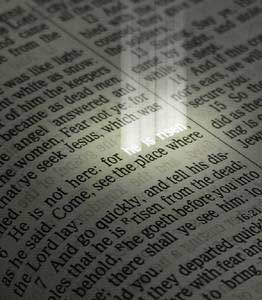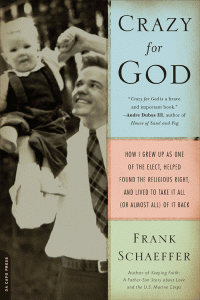Recently, I received what I hoped was a serious inquiry asking “What Moravian Church doctrine/logic do you use to set the parameters for what biblical theology is accepted and what is up for debate?”
Unfortunately, like many others the inquiry was not honest but merely a fishing expedition for a “hot button” argument. But the question itself is a very important one, and I thought I would use it as the starting point for a post here. Because really the question is “How do we responsibly decide how to apply or interpret passages from the Bible that seem contradictory to the teachings of Jesus.” The Rev. Dr. Craig Atwood (Associate Professor of Moravian Theology and Ministry at Moravian Theological Seminary and Director of the Center for Moravian Studies) weighed in on the conversation and I will share some of his input.
NOTE: As it happens, our Faith and Order Commission has recently published a document that addresses this very question,and it is now available on the web. Look for GUIDING PRINCIPLES OF BIBLICAL INTERPRETATION on this page:
http://moravianseminary.edu/faithorder/statements.html
For the Moravian Church as a whole, there is not a simple and pre-packaged response that completely answers the question in a doctrinal or set way. We are a “non-doctrinal” church and are historically suspicious of institutional doctrine, which in many denominations is the result of a fairly complex process of institutional reasoning, compromise, and reaction which is then presented as being nearly equal with the Scriptures when enforced. This is exactly the process that has produced terrible division and suffering in the Christian Church through much of history.
When a public figure (either a religious leader or politician) begins a statement with “The Bible says….” It is almost a sure bet that what follows is NOT actually in the Bible but is a composite of several cherry-picked verses strung together with an elaborate and sometimes questionable structure of interpretation.
This is never more evident that in the public sphere today. When a public figure (either a religious leader or politician) begins a statement with “The Bible says….” It is almost a sure bet that what follows is NOT actually in the Bible but is a composite of several cherry-picked verses strung together with an elaborate and sometimes questionable structure of interpretation. The Rube Goldberg structure and mechanizations that connect the cherry-picked verses always seems very suspicious to me. When recently Franklin Graham held a news conference to pronounce that the “Bible says that life begins at conception,” I came close to apoplexy, because it just isn’t true – and thirty years ago evangelical Christians were adamant that the Roman Catholic position on conception was completely unscriptural. I still have old issues of Christianity Today to prove it. In fact, most people today are unaware that the current Catholic position on the “beginning of life” only dates from 1869, prior to which there was a complex Augustinian theory of “ensoulment” at quickening, but that’s all another story!
In many ways the Moravians (back to the Unitas Fratrum of the 15th century) are the first “Red-Letter Christians” because we have always held the actual words of Christ as reported in the Gospels to be of the highest authority and concentration. Dr. Atwood puts it succinctly that “Jesus is the lens.” We must understand all of Scripture through the revelation of the Word of God, which (gasp) is not the book we call the Bible; the Bible itself says that Jesus Christ is the Logos, the Word of God. To believe in the Word is to believe in the person of Christ.
Some of the folks in the early Unity agreed among themselves to live according to the Beatitudes, a difficult thing in a violent world, and referred to themselves as “Brethren of the Law.” We currently have an intentional Christian community, Anthony’s Plot, which is seeking to hold to the same very difficult standard.
Moravians have always viewed the divisions between denominations as an evidence of human sinfulness, and take seriously the words of Christ in John 13:35 “By this all people will know that you are my disciples, if you have love for one another.” We regard hostile argumentation that divides relationships over “non-essential” issues as being a violation of this principle, and believe that each individual must make up their own mind about issues that are not made clear – by which we mean MANIFESTLY clear – in the Bible. As you might imagine, we have had never-ceasing internal struggles about what is “essential” and what is “non-essential.”
 Historically, Luke of Prague differentiated between that which was ESSENTIAL to salvation (the love and grace of God, the life and sacrifice of Jesus), that which was MINISTERIAL to salvation (Scriptures, sacraments) and that which as ACCIDENTAL to salvation (Language, style of music, etc.). Later the motto that we use today was elaborated by Peter Meldenius and adopted by Moravian Bishop John Amos Comenius: “In essentials, unity; in non-essentials, liberty, in all things love.” This is very similar to an expression used by some other denominations, “we speak where the Bible speaks, and are silent where the Bible is silent.”
Historically, Luke of Prague differentiated between that which was ESSENTIAL to salvation (the love and grace of God, the life and sacrifice of Jesus), that which was MINISTERIAL to salvation (Scriptures, sacraments) and that which as ACCIDENTAL to salvation (Language, style of music, etc.). Later the motto that we use today was elaborated by Peter Meldenius and adopted by Moravian Bishop John Amos Comenius: “In essentials, unity; in non-essentials, liberty, in all things love.” This is very similar to an expression used by some other denominations, “we speak where the Bible speaks, and are silent where the Bible is silent.”
I have often oversimplified this (some of our theologians and historians would argue detail but would agree with the underlying thought) by asking “what are the areas that ALL Christians through history have agreed upon?” As a shorthand answer, this very small list could be regarded as the likely “essentials..” We hold up the simplest creed “Jesus is Lord” as the basic one, and while we use the Apostle’s Creed and the Nicene Creed, we use the Eastern version of the Nicene Creed previous to the filioque dispute. The things that we disagree about thus sort of automatically migrate to the “non-essentials” bin unless we can establish with clarity that the Lord Himself taught it specifically and clearly.
Dr. Atwood says that he does not find the Meldenius motto to be very helpful because people think that the “non-essentials” are unimportant or arbitrary. He is right about this; and that is why when I teach about this motto I always include teaching about Luke of Prague’s version, which is actually a bit more helpful. Dr. Atwood feels that a better understanding of the core beliefs of the Moravian Church are collected in statement called The Ground of the Unity, which is available online HERE.
We speak where the Bible speaks, and are silent where the Bible is silent.
In today’s politicization of religion, I believe that the many Scriptural commands (OT and Jesus’ parables) regarding care of the poor and the downtrodden, and God’s wish for justice have been swept aside by political agenda and ignored or reinterpreted when the meaning is manifestly and plainly clear; and obscure passages that support a particular political agenda are used as weapons. Most of the current discussion spends huge energy and time on things that are NOT made clear or which are minor issues in the Scriptures. Again, if a statement begins “the Bible says…” and what follows is a Rube Goldberg contraption of cherry-picked verses connected with questionable interpretation, then it’s not going to be a Moravian essential!
A great example would be the Scofield Bible, which teaches a complex interpretive theology of dispensationalism, a relatively new idea, which seems to me to be “finding a button and sewing a vest onto it.” Unfortunately, this century-old complex theology drives a lot of belief today (“Left Behind,” etc.) even though it would have seemed utterly foreign and wrong to the apostles. However, a large proportion of American Christendom sees Scripture through this interpretive glass, and is historically illiterate about Apostolic practices and understanding – as they are about how many other current common beliefs developed in the Middle Ages.
A particular example is our approach to Holy Communion, which is an ideal example since it has divided so many denominations. The Scriptures do not explain what communion means, or speak explicitly about exact practice. However, Jesus commands us to share in the experience without elaborating on it. So the Moravian Church permits individuals to make up their own mind about the understanding of communion (transubstantiation, consubstantiation, memorial) and leaves that to the individual believer – the only requirement being that no individual condemn another’s understanding of the meal. We have never taught transubstantiation or that it is a mere memorial meal. We have developed a particular traditional practice of serving communion which is somewhat unique (wafers and grape juice in individual cups, the pastor brings the elements out into the pews and serves each person individually, but then all partake together). The service is made up of hymns that are thematic for the service, and the pastor says the words of institution from the Scriptures without elaboration or explanation. All practices of serving are permissible (intinction, the use of wine in a common chalice and a loaf of bread, etc.).
Similarly, Jesus commands us to baptize but does not explain it further. Therefore, we also baptize in all forms without elaboration as to what it means or discrimination as to how it is done – the one exception being that baptism involves entry into the congregation, and a covenant on the part of the congregation to love and support the person being baptized, so baptism must be in the presence of the congregation. It is not seen as a “christening” that is done in a home or privately. We accept infant baptism in part because it was a widespread practice already; it could be argued that the Baptists are right about the form of baptism since we do not accept the medieval theology that drove the original development of infant baptism, and all the examples in the Bible are clearly immersion of adults. However, we accept all forms of baptism so long as they are not used as statements to denigrate other forms; and Moravians now see infant baptism as a sign of the New Covenant, and a recognition that the spiritual life does not begin at age 13 or some other arbitrary point.
NEXT: An example of interpretation using Jesus as the “Lens.”




